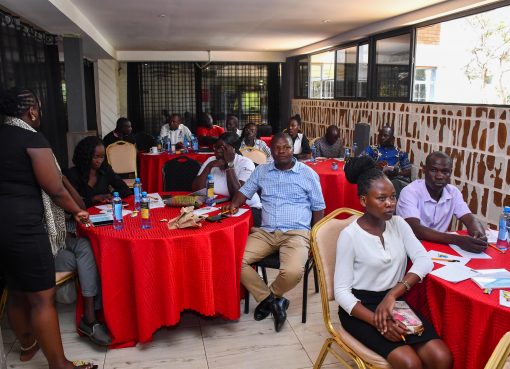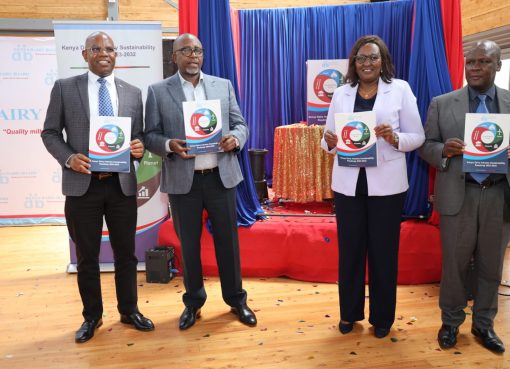Nakuru County Governor Ms. Susan Kihika has said that her administration has prioritized creating a friendly environment for small and medium enterprises (SMEs) through policy and tax regime reforms and elimination of non-tariff barriers to trade.
Ms. Kihika stated that the County Government was committed to reducing the administrative burdens on start-ups, including lowering legal barriers to entry and reducing the costs for regulatory compliance in different areas.
She said her administration would continue encouraging Public-Private partnerships in setting up manufacturing SME hubs to uplift micro, small and medium businesses in value addition towards achieving the 15 percent targeted growth of the sector by 2025.
Ms. Kihika noted that an effective and transparent regulatory environment is vital to entrepreneurship and SMEs development at all stages of the business life cycle, including entry, investment and expansion, transfer and exit.
Speaking during a trade exhibition at the Rift Valley Sports Club, the Governor stated that SMEs, besides significantly contributing to the Gross Domestic Product (GDP), were critical in mobilizing domestic savings for investment, increased harnessing of local raw materials, job creation, and significantly contributed to poverty reduction efforts through sustainable livelihoods and enhancement in individual income, technological development and export diversification.
“Small and medium-sized enterprises are the lifeblood of Kenya’s economy, constituting about 98 per cent of all the businesses in the country. These firms have employed about 14.9 million Kenyans. Most have played a critical role in the country’s economy by inventing new products and approaches,” observed the Governor.
Ms. Kihika noted that the Nakuru County Enterprise Fund Act had established a fund to boost the small-scale businesses.
She said though SMEs are the driving force of economic development in the devolved unit, accounting for 90 per cent of all businesses, 50 per cent of employment, and 40 per cent of Gross Domestic Product access to affordable finance remains a challenge to many.
The Governor observed, “Most large companies have their roots in small and medium enterprises suggesting that the future large corporations are the SMEs of today that must be nurtured to ensure their survival and growth. SMEs are a seedbed for indigenous entrepreneurship and generate many small investments, which would otherwise not have taken place.”
Ms. Kihika noted that though big financial institutions played a critical role in growth and development in the SME sector, there were concerns over the cost of financing SMEs in terms of interest rates offered.
“Despite their important contribution, this sector has continued to face challenges of accessing credit, due to lack of sufficient collateral, high cost of credit, and informal business structure. These challenges were worsened by the Covid-19 Pandemic,” she said.
The governor added that with reduced turnover and Covid-19 disruptions in the market and supply chains, many Small and Medium Enterprises were unlikely to attract affordable and quality credit under the traditional arrangements.
She pledged that where possible, the County Government would strive to empower women, youth and persons with disabilities through financial support for their enterprises as a way of reducing poverty and increasing household incomes within the devolved unit.
A survey conducted by Kenya National Chamber of Commerce and Industry (KNCCI), the Ministry of Industry, Trade and Cooperatives and the International Trade Centre, had established that a third of SMEs in the country that needed funding could not secure loans.
The SME Competitiveness Survey indicated that 33 percent of small businesses indicated that their applications were either rejected, or opted not to apply due to high interest rates, collateral requirements and complex application procedures.
According to the World Bank report on SMEs entrepreneurs, women make up nearly half of all Micro, Small and Medium Enterprises owners and 40 percent of smallholder farm managers, yet they have less than 10 per cent of the available credit and less than one per cent of agricultural credit.
By Jane Ngugi





